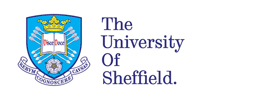
McCabe C., Brazier, J., Gilks, P., Tsuchiya, A., Roberts, J., O'Hagan, A., Stevens, K.
School of Health and Related Research and Department of Probability and Staticstics, University of Sheffield, Sheffield, England
Publication details: Journal of Health Economics 25, 418-431, 2006.
Ranking exercises have routinely been used as warm-up exercises within health state valuation surveys. Very little use has been made of the information obtained in this process. Instead, research has focussed upon the analysis of health state valuation data obtained using the visual analogue scale, standard gamble and time trade off methods.
Thurstone’s law of comparative judgement postulates a stable relationship between ordinal and cardinal preferences, based upon the information provided by pairwise choices. McFadden proposed that this relationship could be modelled by estimating conditional logistic regression models where alternatives had been ranked. In this paper we report the estimation of such models for the Health Utilities Index Mark 2 and the SF-6D. The results are compared to the conventional regression models estimated from standard gamble data, and to the observed mean standard gamble health state valuations.
For both the HUI2 and the SF-6D, the models estimated using rank data are broadly comparable to the models estimated on standard gamble data and the predictive performance of these models is close to that of the standard gamble models. Our research indicates that rank data has the potential to provide useful insights into community health state preferences. However important questions remain.